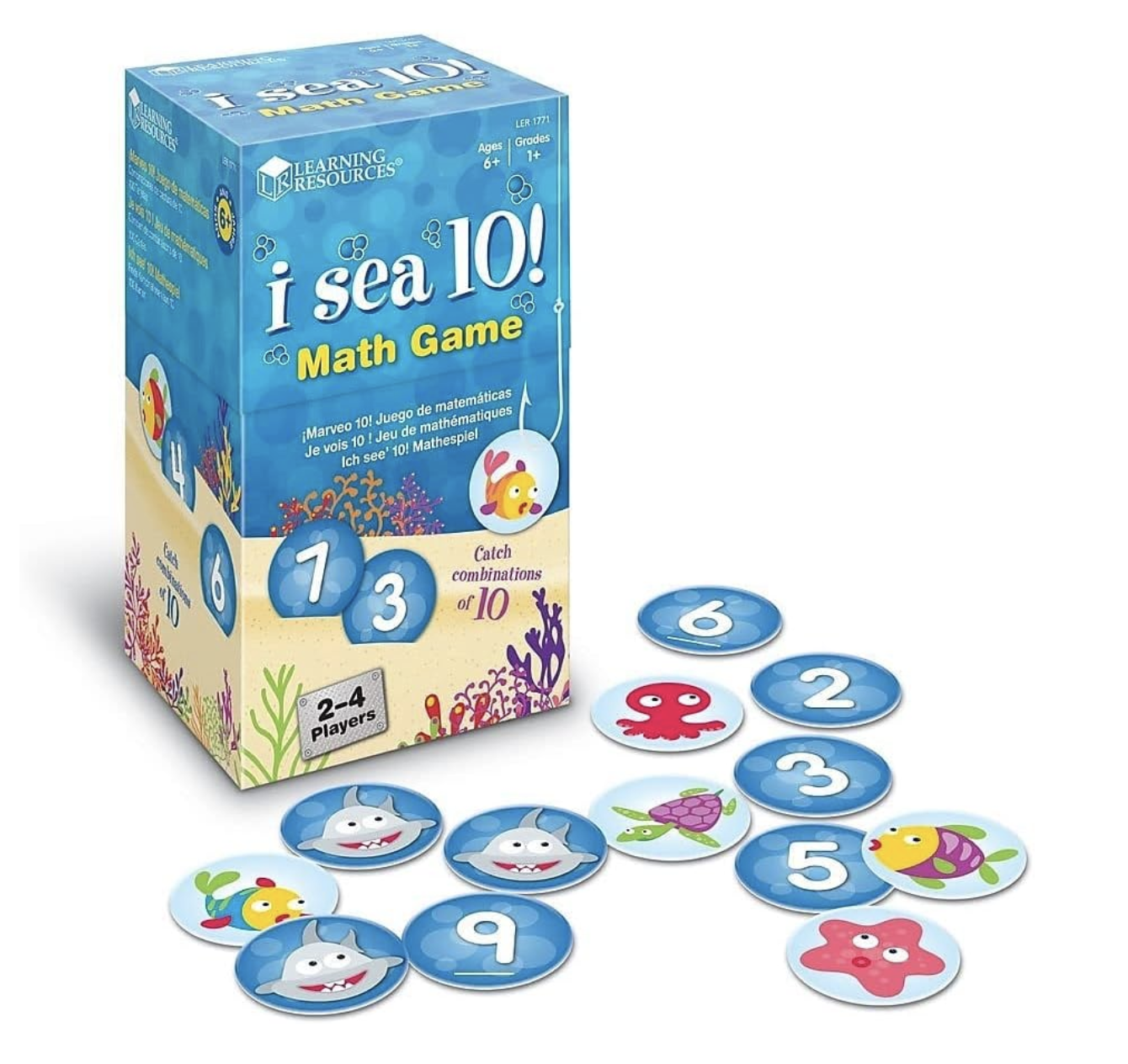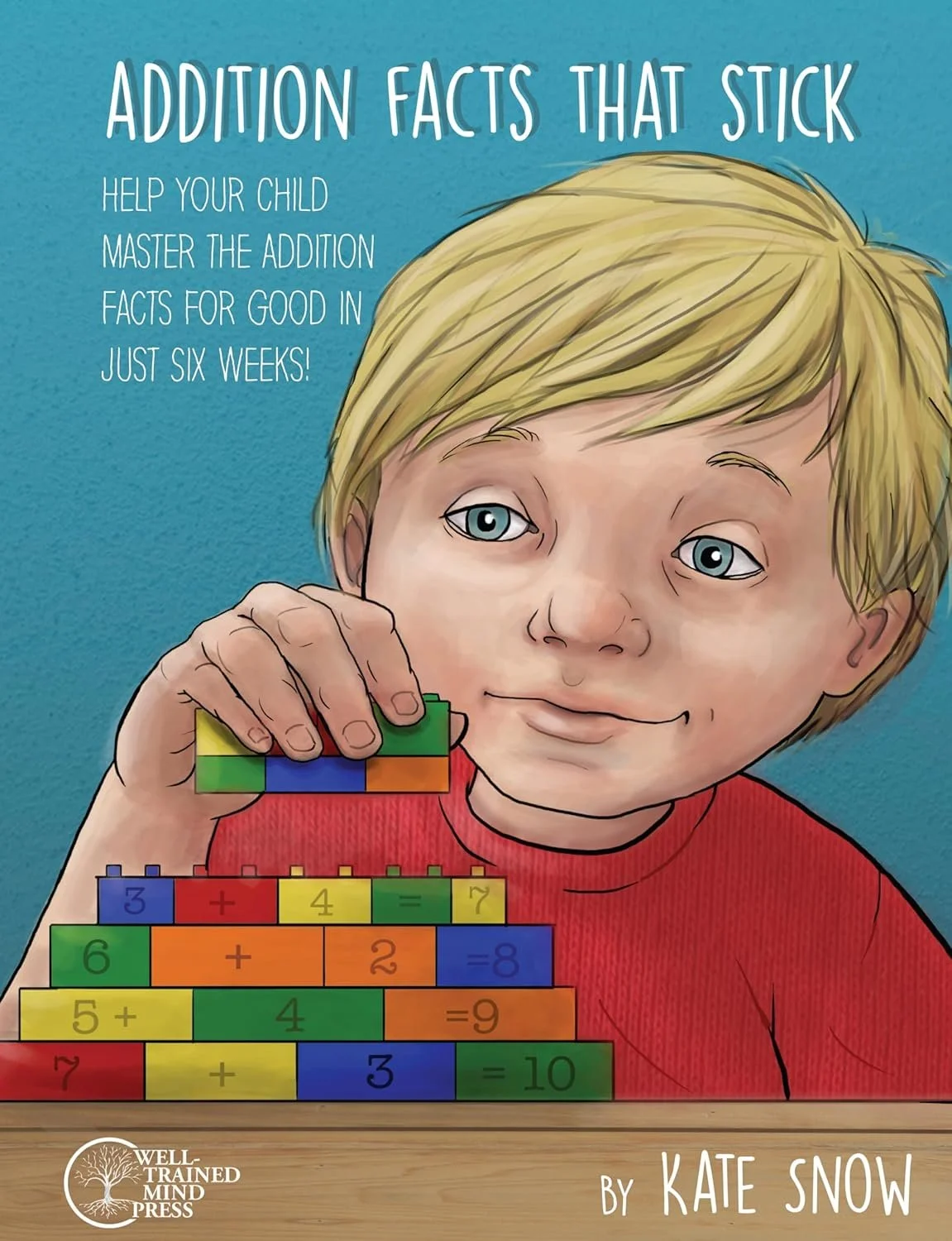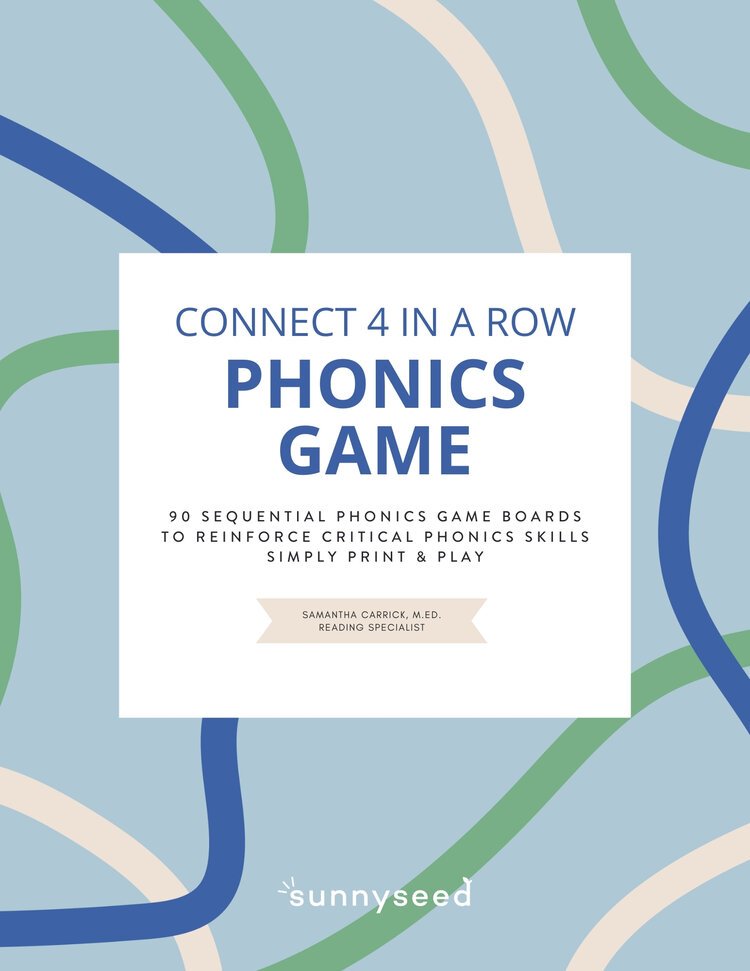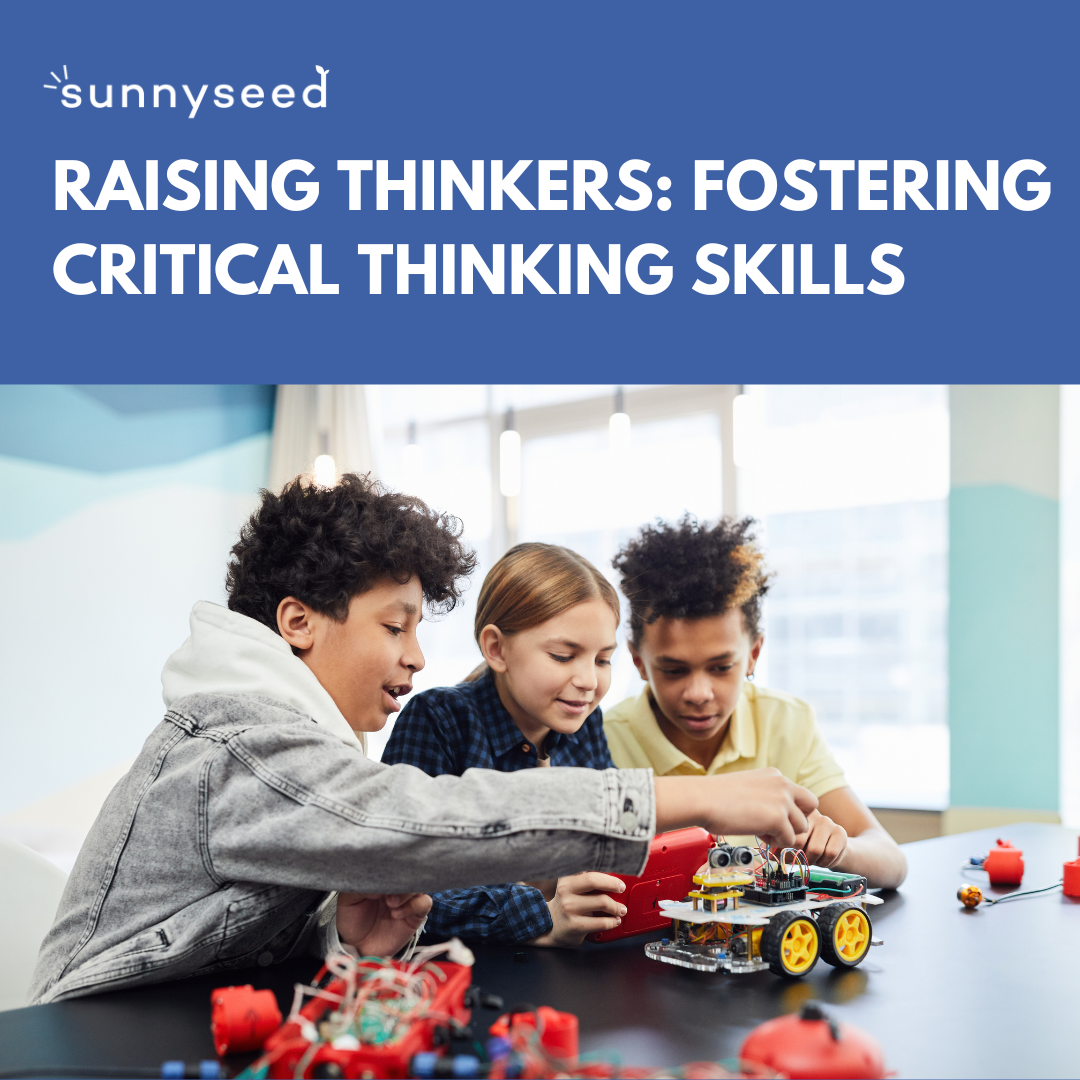Preventing the Summer Learning Slide for Your Child
Oh, sweet summertime! It’s a well-deserved break for children, parents, and teachers; a time for slowing down, family time, and making wonderful memories. But did you know it is also an unfortunate opportunity for students to regress in their reading and math skills? Some reports show students can lose TWO to THREE months of academic progress if they don’t stay engaged in their learning over summer vacation. As a teacher, I’ve seen this happen so many times! We refer to this as the "summer learning slide," also known as the "summer setback."
Yet, I absolutely believe kids need down time, room for free play, exploring the outdoors, and connecting as a family. Slow living!
Thankfully, we can have a playful, relaxed summer with intentional learning to mitigate learning loss. Just 20 minutes of reading every day can make an incredible impact!
20 minutes of intentional learning + review is simply 1.39% of a day. We can do that!
In this blog post you’ll find simple ideas to incorporate into your summer to promote connection, growth, and fun.
PICTURE THIS
Imagine you’ve trained hard (for nine months!) to become a skilled endurance runner. You hit your goals, but decide to completely relax and take 2-3 months off. It feels great at first, but suddenly you’re expected to show up for a marathon. Yikes!
option a: Instead of taking 2-3 months off, you’ll run longer distances 2 days week.
option b: You run a little bit 4-5 days a week, maintaining where you’re at, while also giving your body necessary rest.
You see what I’m getting at? Encouraging our kids to keep up with a little bit of their learning most days of the week will support them in the long run, while also reducing stress.
A LOVE OF READING
Reading aloud to our children is the single BEST thing we can do to prepare them for academic success, but building a read aloud lifestyle takes time and intention. Remember, it doesn’t have to look “perfect” to be beneficial.
Kids do not need to sit still while you read aloud to them. How freeing is that? 🤗 It is completely normal for littles to have short attention spans or need to move their hands. In fact, research shows for some children, actively engaging in an activity with their hands helps them listen better; they are actually able to focus and learn while fidgeting.
Adding something fun for your kids to do while you read aloud to them can help make the experience last longer and be more enjoyable for everyone!
Children’s books actually contain 50% more rare words than primetime television or even college students’ conversations. Don’t rush to jump into chapter books, as young children’s working memory and comprehension skills are not as developed. You can find our favorite picture books and chapter books here.
Grab a picnic blanket or hammock and a snack and read outside.
Try these book play ideas & #storytimesnacks
Consider independent quiet reading (10-20min.) for the entire family. Sitting down to read creates a family culture that values reading, motivates children, and helps you find pockets in your day to recharge!
Create a predictable rhythm - read aloud during snack time or at bedtime. Here are some of our recent favorites:
Offer a variety of high-quality books! Take trips to the local library, or local book store. You can even find books at consignment stores, Goodwill, and in God’s Storehouse (find a local Facebook group).
Most of our favorite books designed with learning in mind, are from PaperPie, the #1 Children’s Publisher.
SUMMER READING PROGRAM
Join a summer reading program or create your own at home! A 2010 study by Allington investigated the effectiveness of summer reading programs in preventing summer learning loss. It found that participation in voluntary summer reading programs led to significant gains in reading achievement. I don’t see harm in this (we LOVEEEEE our local library), but be mindful of extrinsic vs. intrinsic motivation. Parental emphasis on reading as entertainment, rather than as a chore, develops a more positive attitude toward reading in children.
RELUCTANT READERS
There are three main reasons a child is a reluctant reader:
They haven’t found books that interest them. Follow their interests, try graphic novels or Highlights magazine, ditch the stress over “reading levels” and read for pleasure! The more kids read, the better readers they become!
They need a screen detox. We cannot expect books to compete with fast-paced, brightly colored, mind-altering screen time. It changes kids brains. Try screen free for 3 weeks and notice the difference. Find your child’s baseline. Then (if you want), add in one slower-paced show at a predictable time each day.
They have an underlying struggle making it effortful to read. It could be a brain-body imbalance, learning gaps from instruction, dyslexia, or other learning difficulties. Summer is a great opportunity to dig deeper to discover the root cause and help your child receive the intervention and support they need.
AUDIOBOOKS
Audiobooks do not replace the invaluable benefits of reading together with children. However, as long as you’re prioritizing reading books WITH your child (among other early literacy activities), audiobooks can be a fun supplement to nurture a love of books.
Audiobooks are more beneficial for skilled readers and adults than they are for little kids/early readers, simply because a young child’s comprehension skills are not as mature. The important thing to monitor is a child’s understanding (comprehension)…is it too hard? Too emotionally advanced?
By about late elementary school, or when readers become more proficient, decoding words becomes so second-nature that it isn’t any additional “work” for your brain. Since decoding happens automatically for skilled readers, there isn't much difference between listening to an audiobook and reading. "As far as the mental processes are concerned, there really isn’t much difference between reading and listening to a book. One is not more work than the other." (D. Willingham)
Benefits of audiobooks
Teach critical listening
Can introduce kids to new genres or books above their reading level
Model good interpretive reading
Great alternative to screen-time
Decades of research show very high correlations between reading comprehension and listening comprehension.
I highly recommend the YOTO Audiobook Player.
LEARNING GAMES
Check out my Amazon shop for the most recent list of learning games, critical thinking games, and homeschool resources .
Free Games Ideas
Check out these activities for babies, toddlers, and preschoolers
Write letters (or words or math facts) on Post-Its and hide around the room. Have your child find them and read aloud.
Draw numbers 1-4 outside with chalk. Give your child a word and have them jump to the number of syllables they hear. You an also do this with vowels and have them jump to the vowel sound they hear in the word (ex: bat, jump to the /a/ box)
Kaboom! Letter identification game (see my reel)
Use a squirt bottle or water gun to erase letters/words as you call them out.
WRITING
We can learn a lot about our children’s reading skills through their writing skills, since phonics is deeply intertwined in both spelling and reading! There’s even a correlation between handwriting and reading skills. Getting our kids writing - without it feeling like school work - is a great win! I adore looking back on children’s journals to see how much they’ve grown over the years.
Keep a daily or weekly journal.
Find a pen pal and write letters to friends or family.
Consider setting up a writing station with stationary.
OTHER IDEAS TO COMBAT THE SUMMER SLIDE
Talk about brain growth and neurons connecting! Adopting a growth mindset helps children develop positive attitudes towards learning.
Play literacy games or have a family game night
Puzzles are incredible for strengthening cognitive and critical thinking skills. Check out puzzle progression by age.
Consider creating a predictable daily routine when “building brains” occurs! (i.e. reading after breakfast, learning game before screen time, reading aloud with Dad before dinner, etc).
Online art classes. We like these free ones, but I’ve also heard great things about these.
KiwiCo - Science Technology Engineering Mathematics (STEM) kits
IMSE Summer Splash Freebie
Have adventure days! Visit a museum or go on a nature walk. Hand-on, real-world learning is the best kind of learning (in my opinion ☺️)
When a show feels necessary, consider an educational option like Science Max, How It’s Made, Early America, or Forever Ago podcast.
Try Word Ladders to reinforce (absolutely critical) phonics skills!






























